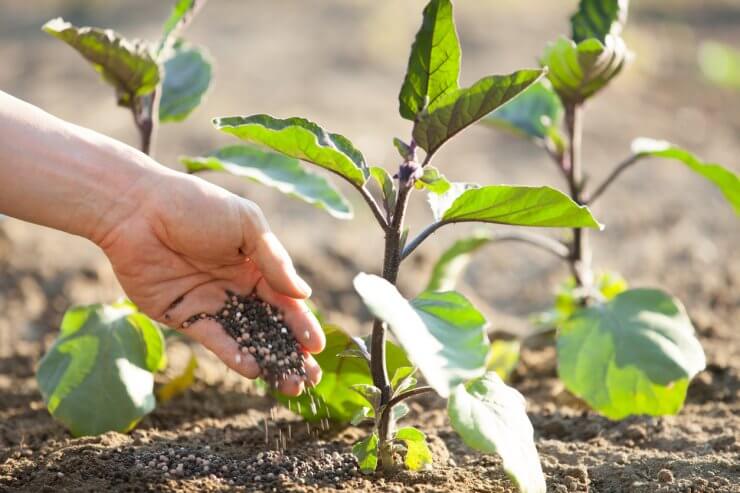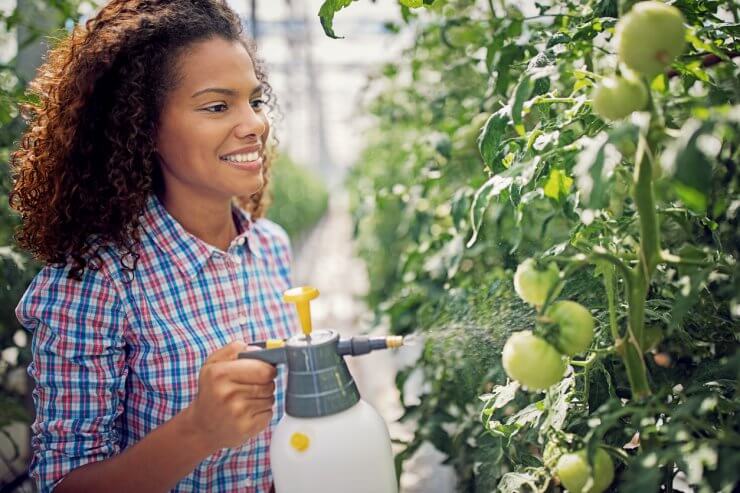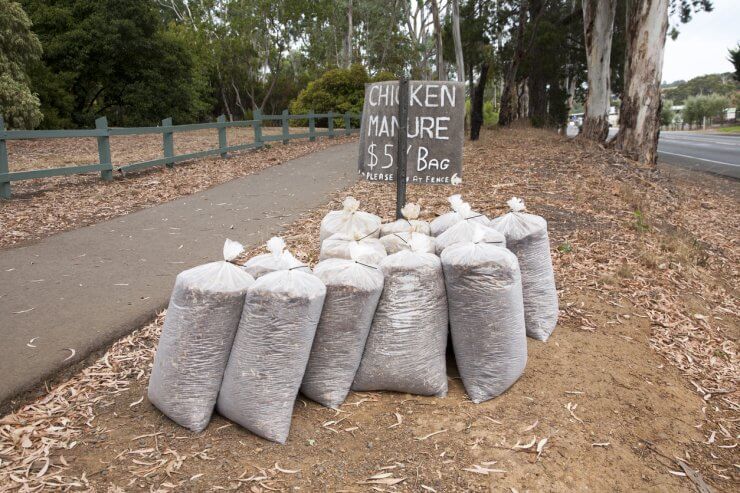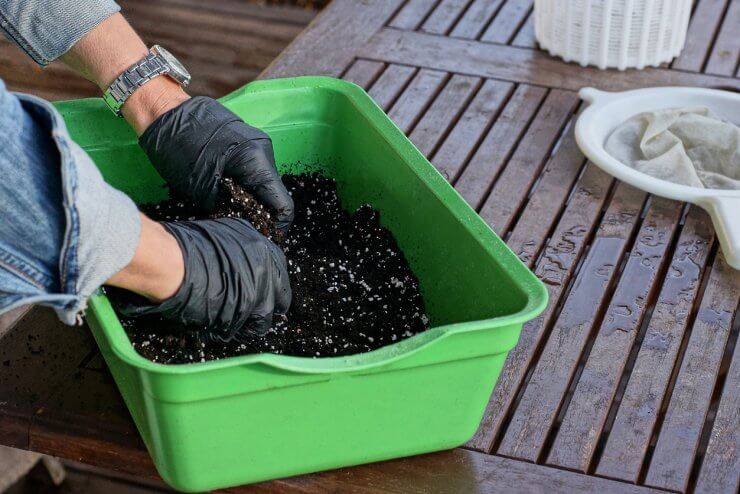
Have I told you how much I adore container gardens? Container gardens are the quiet MVP of the vegetable gardening world. Container gardening provides accessibility to everyone. If you rent a house or apartment, a traditional garden bed might not be feasible. With the help of containers, you can turn a porch, deck, or balcony into a lush vegetable garden. (All without losing your security deposit!) Before starting out, it’s important to learn how to fertilize container vegetables.
Discover 7 top tips for growing, harvesting, and enjoying tomatoes from your home garden—when you access the FREE guide The Best Way to Grow Tomatoes, right now!
Because container vegetables don’t have the same access to nutrients found in the ground, it’s beneficial to add fertilizer before and during your growing season to maximize crop yield. The key when learning how to fertilize container vegetables is to build in a short-term and long-term strategy. Whether you make your own potting mix or buy a fertilizer-rich blend from the store, the nutrients in your container garden will likely be used up within six weeks or so. That’s why it’s important to add some slow-release fertilizer to your mix as well as feed your container veggies mid-season. Here’s a breakdown of different types of fertilizer to use on your container vegetables.
All-purpose fertilizer
This is a great starting point. Many types of packaged potting mix come with all-purpose fertilizers already pre-mixed. If you’re making your own potting mix, consider adding some all-purpose fertilizer according to the suggested ratio on the label. Or use a DIY all-purpose fertilizer. All-purpose fertilizer is great because it gets to work right away. Be sure to follow the directions on your fertilizer label. Using too much all-purpose fertilizer can cause root burn.

Water-soluble fertilizer
Water-soluble fertilizer can come in powder or liquid form and typically needs to be diluted with water according to its label. Like all-purpose fertilizer, adding water-soluble fertilizer starts working right away. There are many organic options including ones with more natural ingredients like kelp, seaweed, fish, and earthworm castings. Compost tea is another liquid fertilizer option made from leachate or the liquid remnants of a compost pile.

Chicken manure pellets
Chicken manure is the best animal manure to use when figuring out how to fertilize container vegetables because of its slow-release properties. It’s also the least likely to contain weed seeds thanks to a chicken’s digestion process. Chicken manure must be composted before use since raw chicken manure can burn vegetables from high levels of nitrogen and phosphorus. You can purchase composted chicken manure pellets that are ready to use right out of the package. With the addition of organic material like chicken manure pellets, your vegetable plants will retain more moisture.

Other slow-release fertilizers
When learning how to fertilize container vegetables, I definitely recommend incorporating some kind of slow-release fertilizer. Especially if you’re like me and occasionally (see: regularly) forget to fertilize mid-season. The key to taking advantage of slow-release fertilizers is to incorporate them into your potting mix at the time of planting. But even if you forget to add fertilizer at the time of planting, there are other slow-release products to try like these fertilizer stakes.
Some basic tips for how to fertilize container vegetables:
- Don’t add fertilizer to dry plants. Water your container vegetables first then wait an hour or two before applying fertilizer according to directions. This helps prevent root burn.
- Not all veggies respond to the same fertilizer. Leafy greens, for example, usually only need extra nitrogen, while other veggies (or fruits) like tomatoes may need more potassium.
- Remember to water your container vegetables more often than you would a garden bed. Water drains quickly from containers and vegetables can’t send out a long root system in search of more moisture or nutrients.
What do you recommend for folks learning how to fertilize container vegetables? What fertilizer works best in your container gardens? Let me know in the comments.
Discover 7 top tips for growing, harvesting, and enjoying tomatoes from your home garden—when you access the FREE guide The Best Way to Grow Tomatoes, right now!





I make compost in buckets near where it will be used and aimed specifically to what grows nearest to there. I also make composts teas and mulch with coffee grounds, pine needles, ect that are readily available.
Currently I use Miracle Grow or Bonnie’s for my plants. My husband isn’t interested in growing anything so these are the easiest for me at this time.
Thank you for sharing the informative article.
Thank you for sharing the informative article.
My go to fertilizer is worm castings, I have a bin of composting worms and the castings themselves or a “tea” made by diluting the castings works great.
Thank you